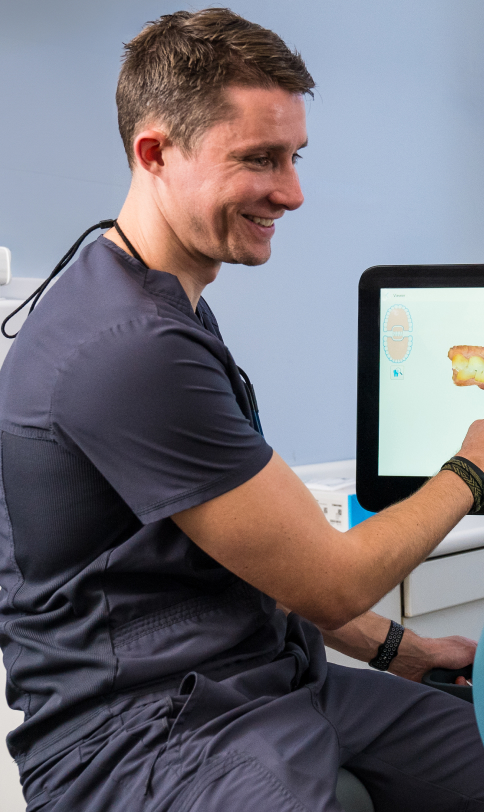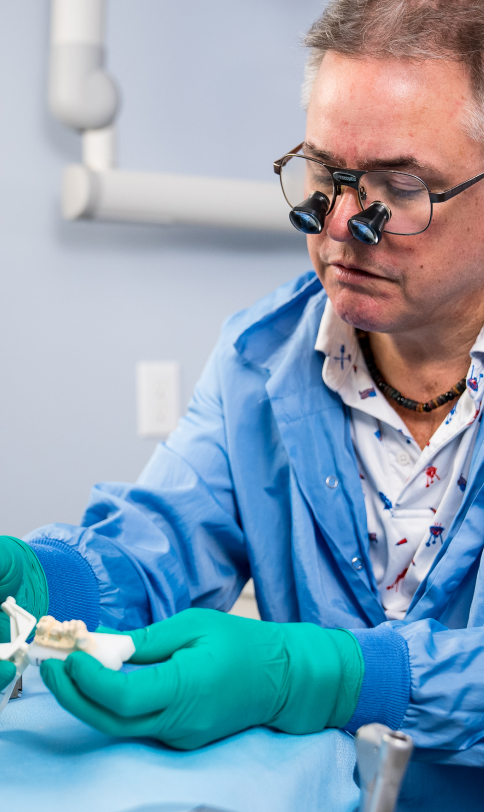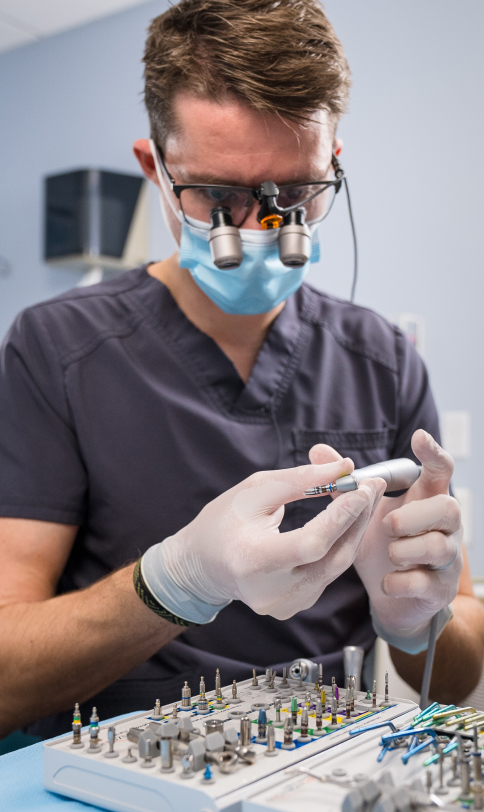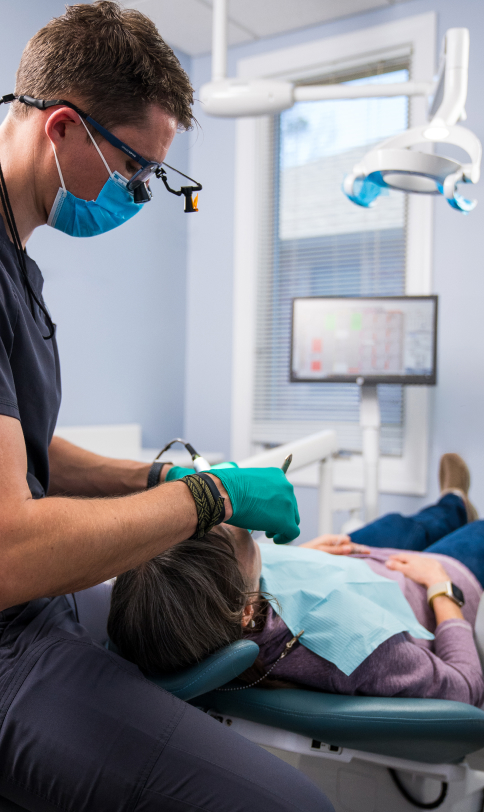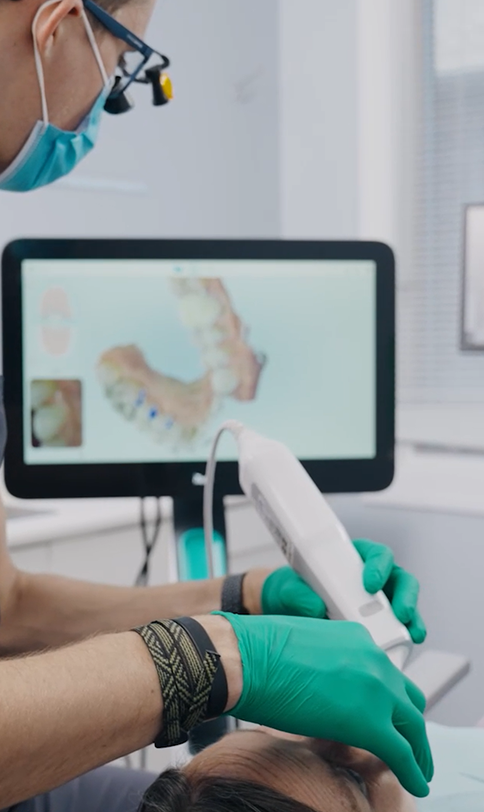When dental pain strikes unexpectedly, finding immediate relief becomes a priority. One common question that arises is whether an emergency dentist can perform a root canal. This procedure is often necessary for saving a tooth with severe damage or infection. So, can an emergency dentist handle this crucial treatment? Let’s explore how emergency root canals work, what to expect, and why timing matters when seeking urgent dental care.
What Is a Root Canal?
A root canal is a dental procedure that removes infected or damaged tissue inside the tooth. The goal is to save the tooth by cleaning out the infected pulp and sealing the tooth to prevent further issues. It’s a standard treatment used to alleviate pain and prevent tooth loss.
A few common symptoms that might indicate the need for a root canal include:
- Persistent pain: If you’re experiencing an intense toothache that won’t go away, it could signal severe damage.
- Sensitivity to hot or cold: Sensitivity that lingers after removing hot or cold stimuli may indicate nerve damage.
- Swollen gums: Swelling around the affected tooth could indicate infection.
- Discoloration of the tooth: A tooth darkening could mean the inner tissues are damaged.
- Pain when chewing or touching the tooth: Increased pressure sensitivity often signals deeper dental problems.
These signs can quickly turn from minor discomfort to a dental emergency. When this happens, contacting an emergency dentist is essential.
Can Emergency Dentists Perform Root Canals?
Yes, many emergency dentists are equipped to perform root canal treatments, especially in urgent cases. If your tooth is severely damaged or infected, waiting too long could result in losing the tooth. Emergency dentists can relieve your pain and stop the infection from spreading by performing a root canal.
Why Is an Emergency Root Canal Important?
Delaying treatment for a severely infected tooth can lead to further complications. The infection could spread to surrounding teeth, gums, or even other areas of your body. Emergency dentists are trained to handle time-sensitive situations and perform procedures like root canals to protect your health.
Here’s why acting quickly is crucial:
- Pain relief: A root canal addresses the cause of your pain by removing the infection.
- Tooth preservation: The goal of a root canal is to save your natural tooth, preventing the need for extraction.
- Preventing infection spread: Removing the infected tissue helps prevent the disease from worsening or spreading to other body parts.
The Role of Emergency Dentists
Emergency dentists specialize in handling sudden and urgent dental issues. They are often available outside of regular office hours and can perform complex treatments like root canals if needed. If you search for “emergency root canal near you,” it’s likely that a nearby dentist can provide the care you need.
When Should You Seek an Emergency Root Canal?
If you’re experiencing severe tooth pain, swelling, or other symptoms that won’t improve, it’s essential to contact an emergency dentist in Cary. Here’s how you’ll know it’s time to seek immediate help:
- Severe, unrelenting pain: Pain that doesn’t go away with over-the-counter medication or gets worse is a sign you need prompt treatment.
- Swelling or abscess: If you notice a pus-filled bump near the painful tooth, this could indicate an abscess—a severe infection that needs immediate attention.
- Trauma or injury to the tooth: A cracked or broken tooth that exposes the pulp might require an emergency root canal to prevent further damage.
Acting quickly can help preserve your natural tooth and prevent the need for more invasive treatments. If you live in Cary or the surrounding area, looking for an “emergency root canal near Cary” can connect you with nearby dental care.
What Happens During an Emergency Root Canal?
The process is similar to a standard one, with the main difference being the urgency of treatment. Here’s a breakdown of what to expect:
- Examination and X-rays: The dentist will first examine the affected tooth and take X-rays to determine the extent of the infection.
- Numbing the area: Local anesthesia will be applied to ensure you don’t feel pain during the procedure.
- Cleaning the infected pulp: The dentist will remove the infected tissue inside the tooth.
- Sealing the tooth: Once cleaned, the dentist will seal the tooth to prevent reinfection. Sometimes, you may require a crown afterward to strengthen the tooth.
The good news is that you’ll leave the office pain-free, and your tooth will be on its way to recovery.
What to Expect After an Emergency Root Canal?
After your procedure, you might experience some soreness for a few days, but this is manageable with over-the-counter pain relief. Following aftercare instructions from your dentist is essential to promote healing and avoid complications.
Benefits of Getting an Emergency Root Canal
- Immediate pain relief
- Prevention of further damage
- Tooth preservation
- Quick recovery with minimal downtime
Why Shouldn’t You Delay an Emergency Root Canal?
If you’re facing sudden, severe tooth pain or infection, getting a root canal done by an emergency dentist can make all the difference. Acting quickly relieves pain and preserves your natural tooth, preventing more invasive and costly treatments later on.
If you notice symptoms like persistent pain or swelling, don’t wait. Finding an “emergency root canal near you” ensures immediate care from a local professional, protecting your dental health from further damage.
Taking swift action will help you save your teeth and avoid future complications.
FAQs
What are the signs that I need a root canal?
Common signs that you may need a root canal include severe toothache, prolonged sensitivity to hot or cold, swelling and tenderness in the gums, discoloration of the tooth, and pain when chewing. If you experience any of these symptoms, it’s crucial to seek dental care promptly.
How long does a root canal procedure take?
The duration of a root canal can vary based on the case’s complexity. Generally, it takes about one to two hours to complete. It may take longer if you have multiple roots or an infection, but your dentist will inform you of the expected time during your visit.
Can an emergency dentist perform a root canal on any tooth?
Yes, an emergency dentist can perform a root canal on most teeth, including molars, premolars, and incisors. However, the complexity may vary depending on the tooth’s location and structure. If you need immediate care, an emergency dentist will evaluate the situation and provide the necessary treatment.
What happens if I wait too long to get a root canal?
Delaying a root canal can lead to severe complications, including spreading the infection to surrounding teeth and tissues. In some cases, the tooth may become abscessed, resulting in more intense pain and requiring extraction. Timely treatment is essential for preserving your tooth and overall dental health.
Will I need follow-up visits after a root canal?
Yes, most patients will require at least one follow-up visit after a root canal. This appointment allows the dentist to check for any signs of infection and ensure proper healing. Depending on your case, you may also need a crown or other restorative treatment to protect and strengthen the tooth.


